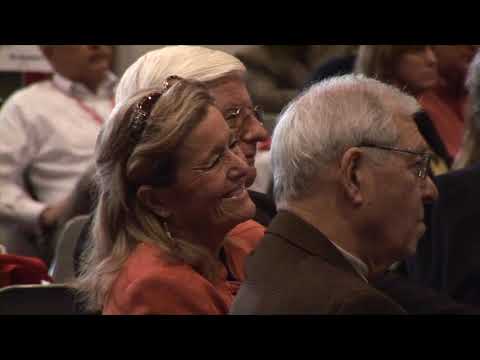On July 18, 1965, U.S. Navy Commander Jeremiah Denton took off from the aircraft carrier USS Independence leading a 28-plane mission over the city of Thanh Hoa in North Vietnam. Denton’s plane was hit by anti-aircraft fire during the attack, and for the next eight long years, he would battle the North Vietnamese as a prisoner of war in the infamous Hanoi Hilton. As the senior American officer at the prison, Denton was forced by the North Vietnamese to participate in a press conference and told he must say the POWs were being treated well. Looking haggard, weak and beaten from the severe punishment he had undergone, Denton took advantage of that opportunity however, to send a secret message home, blinking out the letters T-O-R-T-U-R-E in Morse code. In this new APT original film, JEREMIAH, family, friends, and fellow POWs help tell the story of this American hero who led the way for prisoners in Hanoi and returned from Vietnam to become a U.S. Senator from Alabama. Six of Denton’s children are interviewed: Jeremiah III, James, Don, Mike, Mary and Madeleine. Other interviewees include Senate staffer Joel Lisker, who worked for Denton; Alvin Townley, author of Defiant; and Heath Hardige Lee, who is writing a history of the POW wives and the POW/MIA movement. Along with Denton, the three veterans interviewed in the film – Robert Shumaker, James Muligan and George Coker – were part of the Alcatraz Eleven, a group of hardline resistors that the Vietnamese removed from the Hanoi Hilton and sent to a worse prison that the POW’s named Alcatraz. There they spent two and a half years in solitary confinement in cells that were 3 1/2 feet wide and 9 feet tall with solid walls and a solid door. One of the challenges JEREMIAH’s producer, Mark Fastoso, dealt with in the program was showing viewers what conditions were like for the POWs. Fastoso asked skilled theater designer Paige Hathaway to create miniatures of the hallways and cells of the North Vietnamese prisons, and director of photography Dennis Boni made them look like the real thing. “I didn’t want to dramatize the torture and the suffering Denton and other POWs faced,” Fastoso said. “The accounts we hear in the interviews tell that story. But I did want people to be able to picture the environment they lived in.” The interviews also describe what was happening back home to Denton’s wife, Jane, and their seven children, who wondered if he would ever return as they faced the turbulent social changes of the 1960’s. Jane Denton managed to overcome her grief at his imprisonment by becoming an activist and helping to start the POW/MIA Movement which was partially responsible for the Vietnamese ending their program of torture.

50th Anniversary of Operation Homecoming at Travis AFB
Retired U.S. Air Force Lt. Col. Richard “Dog” Brenneman, pilot and Vietnam POW, shares his experience of being captured, kept prisoner and released from the Hanoi Hilton. Retired U.S. Air Force Lt. Gen. John F. Gonge, commander and pilot, shares how the 22d Air Force executed Operation Homecoming in 1973. Kathy Freeberg, daughter of retired U.S. Air Force Col. Alan Leslie Brunstrom, pilot and Vietnam POW, shares stories of her father and his return. Operation





